General
MoES, Council Commend Progress on DARP Project
Published
4 years agoon
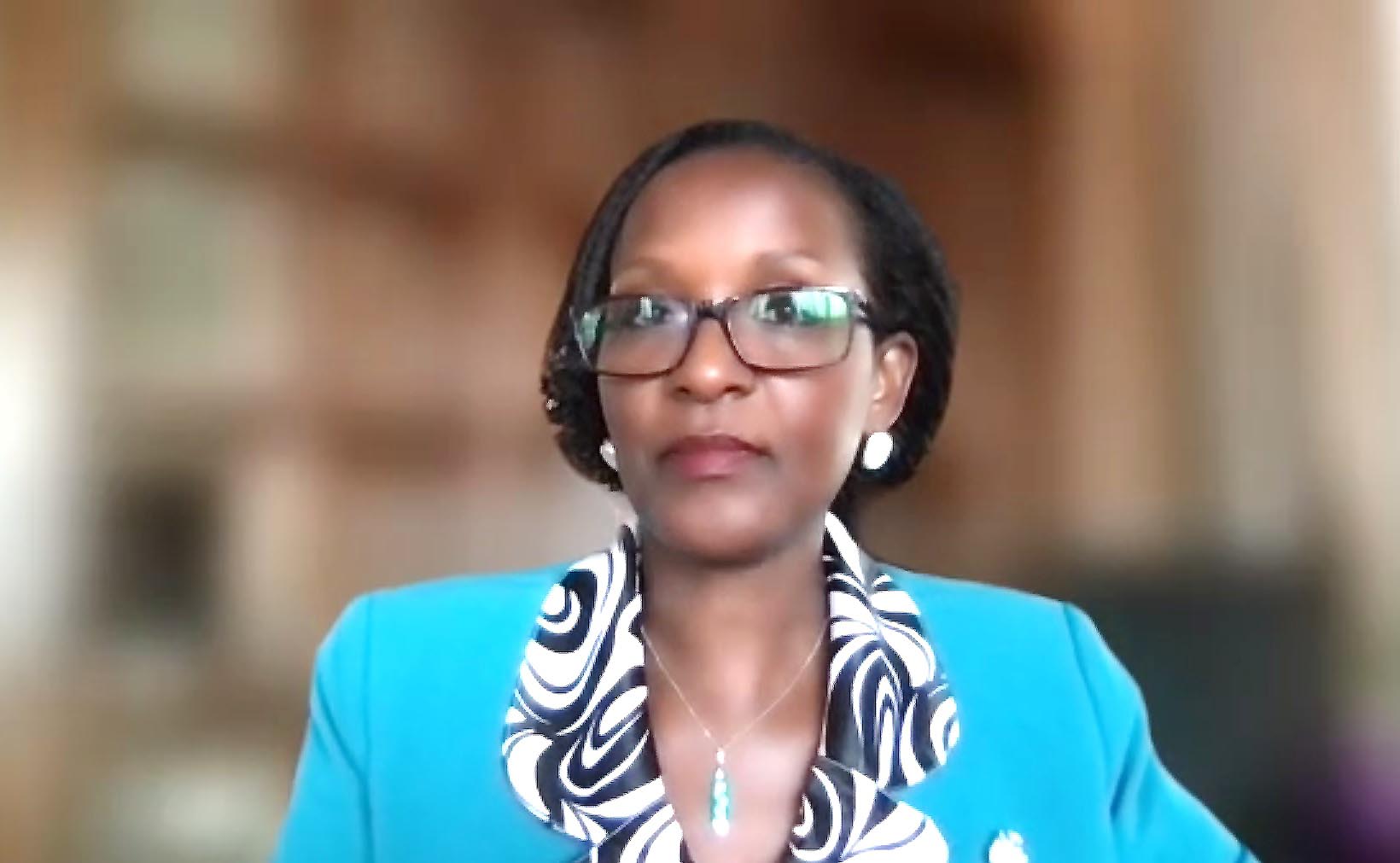
The Permanent Secretary, Ministry of Education and Sports (MoES) represented by the Director Education Standards, Dr. Kedrace Turyagyenda and the Chairperson of Council, Mrs. Lorna Magara have commended the progress made by the Digitalizing of Academic Records and Processes (DARP) project so far. DARP is a collaboration between the Department of the Academic Registrar (AR), the East African School of Library and Information Science (EASLIS), Directorate for ICT Support (DICTS), and School of Education.
Funded by the Government of Uganda through the Makerere University Research and Innovations Fund (Mak-RIF), the ultimate goal of the DARP project is to improve the status of both undergraduate and graduate academic records by preserving them, converting them into digital form, and automating academic processes for e-service delivery.
In her remarks at the blended dissemination event held on 1st September 2021, Dr. Turyagyenda who was part of the virtual audience congratulated the Makerere University Management and the Department of Academic Registrar upon embracing the 4th Industrial Revolution (4IR) by using ICT to strengthen its document retrieval processes.
“As you are aware, Makerere University is not only the mother University for Uganda but for East and Central Africa. It should always be ahead and set an example for the rest” noted Dr. Turyagyenda who added that the project was in line with the National e-Government Policy Framework.
She congratulated Makerere upon completing the first phase of the three-year project but nevertheless requested that the remaining phases be completed promptly so as to ensure efficiency and effectiveness.
“I am really delighted to join you on the occasion of presenting yet another digitisation initiative at Makerere University” admitted the Chairperson of Council as she began her remarks.
Mrs. Magara noted that the digitisation of all university processes is the core target of the Council. This is illustrated by the ongoing initiatives such as the e-Human Resource Management System (e-HRMS), Academic Records Information System (MakARIS), digitisation of Financial Management process among others. She added that the DARP project was in line with the second goal of the university strategic plan that focuses on fostering innovations in teaching and learning that respond to the changing environment.
“The sudden change of our work environment following the outbreak of COVID-19 almost two years ago demands that we fast track initiatives to deliver services with limited physical contact. I see the digitisation of our academic records as a crucial step in adapting to the new working environment” she explained.
The Chairperson of Council nevertheless urged the University to develop a risk profile and management plan for e-resources to guard against the challenges of digitisation such as system failures and data piracy. “We must ensure that university systems have the necessary protection against these risks.”
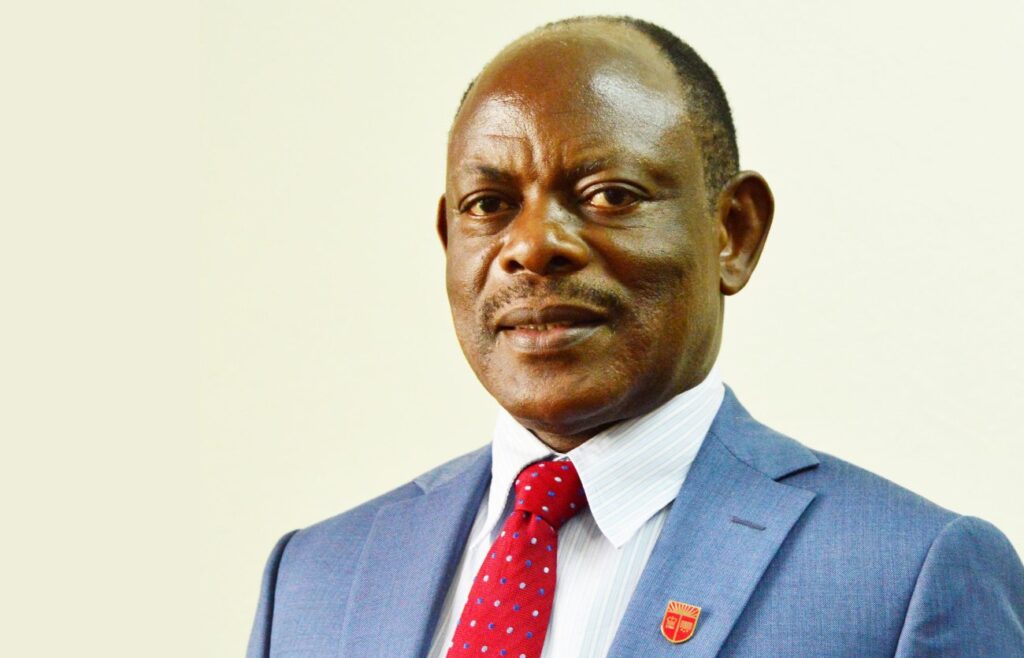
The Vice Chancellor, Prof. Barnabas Nawangwe noted that digitisation of student records has been of great concern to the University Council and Management, given the physical nature and age of some of the records. He therefore thanked the Government for providing funds to support the DARP project through Mak-RIF, and the commitment to continue providing resources for research and innovations at the institution.
Prof. Nawangwe equally thanked the Chairperson and Members of Council for their continual support to Management in the execution of various initiatives and institutional programmes. “The issue of digitisation has been one of the most important issues the Chairperson has been emphasisng to us and we thank Council for their leadership and support.”
The Vice Chancellor announced the University Management’s recommendation that part of the relief funding by the MasterCard Foundation to Makerere University following the fire that gutted the Main Building be allocated to support the DARP project to its conclusive end. The announcement was received with thunderous applause from the team and engagement participants.
The Academic Registrar, Mr. Alfred Masikye Namoah while inviting the Principal Investigator Mrs. Patience Mushengyezi to share project updates and achievements also thanked Government for supporting the non-funded priority areas in Makerere University. He additionally applauded Prof. William Bazeyo, the Head Grants Administration and Management Support Unit (GAMSU) and Chairperson Mak-RIF GMC for leading efforts on resource mobilization for the university noting that these resources have benefited university scholars, students and even partners outside the university. He emphasized the need to work even harder to accomplish already running projects including the DARP project.
Making a presentation on what had been achieved under Phase I of the DARP project, the Principal Investigator (PI), Mrs. Patience Mushengyezi thanked the Government, University Council, Management and the Mak-RIF Grants Management Committee (GMC) headed by Prof. William Bazeyo for the funding and support that had propelled the project to its present stage. She paid tribute to the Ag. Deputy Vice Chancellor (Finance and Administration), Dr. Josephine Nabukenya for the guidance during the grant preparation stage as well as the Academic Registrar, Mr. Alfred Masikye Namoah and Directorate of Research and Graduate Training (DRGT) leadership for supervising the project.
Mrs. Mushengyezi introduced members of her team who included; Archivist-Dr. David Luyombya, Project Coordinator/ Administration-Dr. Peace B. Tumuheki-Mukombe, ICT Specialist/Administrator Records-Ms. Ruth Iteu Eyoku, Database Managers-Mr. Tonny Oluka and Mr. Juma Katongole, Monitoring and Evaluation in-charge-Dr. Betty Akullu Ezati and Project Accountant-Mr. Gyaviira Lubowa.
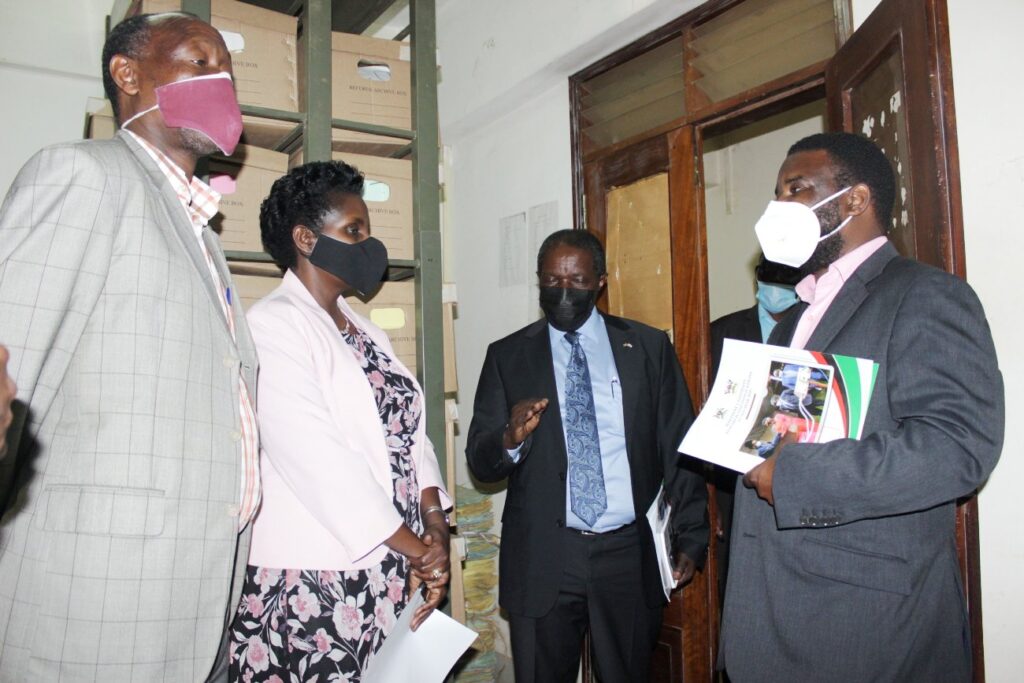
The PI shared that DARP is a multiyear project made up of the following three phases;
Phase 1: Planning/preparation for system design
- Identification and classification of records
- Physical organisation of records (sorting, arranging, labelling, archiving)
- Study visits
Phase 2: System Design and Implementation
- Scanning, archiving, data entry
- Digitizing records and automation of processes
- Policy formulation and approval
- Refurbishment of the Senate conference Hall for provision of ICT services
Phase 3: Implementation and Evaluation
- Installation of Records Management System
- Establishing a Records Verification and Certification Centre
Mrs. Mushengyezi shared that as a result of completion of Phase 1, the DARP project had; Sorted and cleaned at least 80% of undergraduate students’ results and files, Established 50% inventory of existing records, Recorded and labelled Senate minutes and records, Opened files for vital documents and closed redundant files, as well as Archived, labelled and systematically shelved boxes containing records.
Furthermore, the reorganisation had; Helped redeem space while creating a better working environment, Prepared records for digitisation under Phase 2, Facilitated easy retrieval of records, Conserved and preserved records – some over 50 years old, and Equipped 10 students of Bachelor of Records and Archives Management and Bachelor of Library and Information Science with hands-on experience.
The PI recommended that funds should be availed to help procure modern records storage facilities such as electronic rotating shelves, which help ensure efficient space utilisation. She further recommended that Makerere should identify land where an off-site record storage facility can be constructed and safely secured for university records. This, she added, could act as an income generating facility, whereby government and non-government entities could be allowed to store their records at a fee.
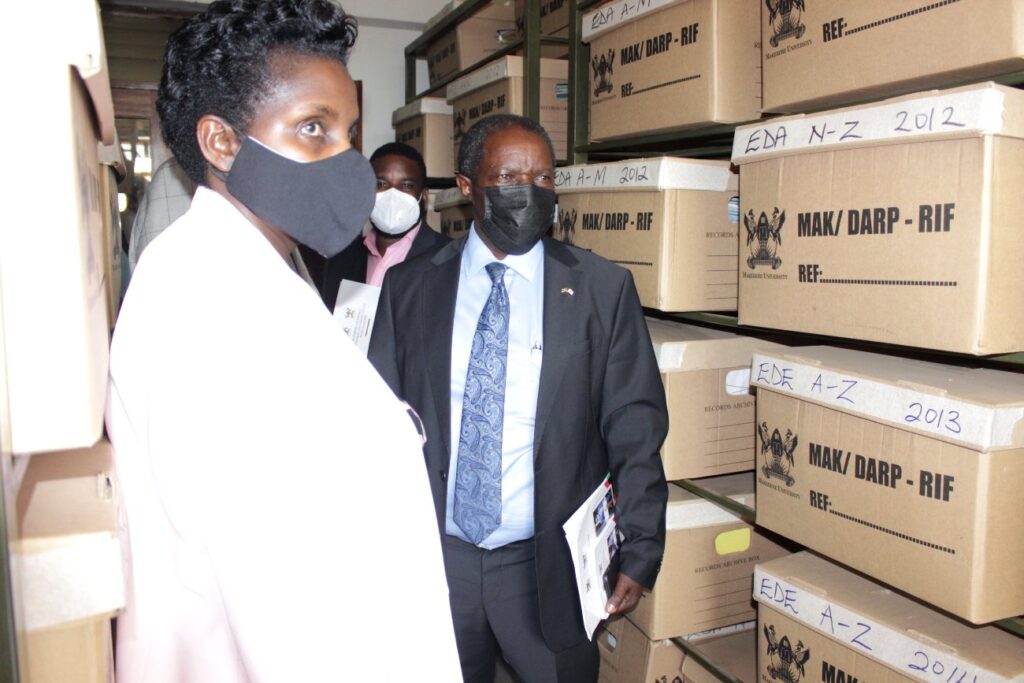
Appreciating the importance and long overdue implementation of the DARP project, Prof. William Bazeyo the Head Grants Administration and Management Support Unit (GAMSU) and Chairperson Mak-RIF GMC announced that funding had already been earmarked for Phases 2 and 3 of the project.
“I would like to affirm to the Academic Registrar that of the resources we received, one of the projects Makerere will be happy to support is DARP Phases 2 and 3. The GMC has approved these subsequent phases because this is something we think we ought to do” announced Prof. Bazeyo to yet more thunderous applause.
Prof. Bazeyo paid tribute to the Chairperson and Members of Council for their support to Management, which underlined their commitment to cause change through digitisation of processes. He equally paid tribute to the Vice Chancellor for his vision of unlocking the potential of Makerere University.
The concluding remarks at the dissemination were delivered by the Deputy Vice Chancellor (Academic Affairs), Dr. Umar Kakumba who was represented by the Deputy Director DRGT, Dr. Robert Wamala. He sincerely appreciated the Government for the first disbursement of funds to Mak-RIF for the current financial year despite the COVID-19 crisis and various commitments. He concluded by thanking the PI and her team for the commendable job done despite the enormity of the task, and the GMC for guaranteeing funding for the remaining phases of the project.
Rev. Can. Onesimus Asiimwe, the Chaplain St. Francis Chapel delivered the opening and closing prayers at the dissemination that was moderated by the Principal Public Relations Officer, Ms. Ritah Namisango as well as the Director Communications, Learning and Knowledge Management, ResilientAfrica Network (RAN) and PRO Mak-RIF, Ms. Harriet Adong.
You may like
-


Mak Selected to Host Alliance for African Partnership Africa Office
-


Meet Najjuka Whitney, The Girl Who Missed Law and Found Her Voice
-


Makerere University School of Public Health Graduates First Cohort of Cost-Effectiveness Analysis Short Course
-


Climate variability found to shape malaria trends in Yumbe District
-


Mak hosts First African Symposium on Natural Capital Accounting and Climate-Sensitive Macroeconomic Modelling
-


Uganda Martyrs Namugongo Students Turn Organic Waste into Soap in an Innovative School Project on Sustainable Waste Management

The 76th Graduation Ceremony of Makerere University will be held from Tuesday 24th to Friday 27th February, 2026. A total of 213 PhDs (87 female, 126 male), 2,503 Masters (1,087 female, 1,416 male), 206 Postgraduate Diplomas (80 female, 126 male), 6,343 Undergraduate Degrees (2,999 female, 3,344 male), and 30 Undergraduate Diplomas (9 female, 21 male) will be graduating from all the Colleges.
Ms. Sarah Aloyo and Ms. Nakato Dorothy both students of the Bachelor of Procurement and Supply Chain Management emerged as the best in the Humanities and Best Overall students with a CGPA of 4.93. Mr. Ssewalu Abdul, a Bachelor of Leisure and Hospitality Management student emerged second best in the Humanities with a CGPA 4.90. Ms. Esther Ziribaggwa emerged as the best student in the Sciences with a CGPA of 4.77 in the Bachelor of Agricultural and Rural Innovation, while Mr. Simon Mungudit emerged second best in the Sciences with a CGPA of 4.76 in the Bachelor of Science in Petroleum Geoscience and Production.
Commencement Speakers
- Day 1 – Prof. Nicholas Ozor, the Executive Director of the African Technology Policy Studies Network, Nairobi, Kenya
- Day 2 – Prof. Dr. Maggie Kigozi, Chairperson Makerere University Endowment Fund Board
- Day 3 – Dr. Patricia Adongo Ojangole, Managing Director, Uganda Development Bank Limited
- Day 4 – Ms. Reeta Roy, Former President & Chief Executive Officer, Mastercard Foundation
The 76th Graduation Ceremony will be held at the Freedom Square following the schedule below:
Tuesday, 24th February, 2026
College of Agricultural and Environmental Sciences (CAES)
College of Computing and Information Sciences (CoCIS)
College of Education and External Studies (CEES)
School of Law (SoL)
Livestream Link for Day 1: https://youtube.com/live/wVGPA0FJ9pU
Wednesday, 25th February, 2026
College of Health Sciences (CHS)
College of Natural Sciences (CoNAS)
College of Veterinary Medicine, Animal Resources and Bio-security (CoVAB)
School of Public Health (SPH)
Thursday, 26th February, 2026
Makerere University Business School (MUBS)
College of Business and Management Sciences (CoBAMS)
Friday, 27th February, 2026
College of Engineering, Design, Art and Technology (CEDAT)
College of Humanities and Social Sciences (CHUSS)
Institute of Gender and Development Studies (IGDS)
Makerere Institute of Social Research (MISR)
General
Mak Selected to Host Alliance for African Partnership Africa Office
Published
1 day agoon
February 23, 2026
Makerere University has been selected to host the Africa Office of the Alliance for African Partnership (AAP). The significant milestone that underscores Makerere’s role in fostering research, innovation, and global collaborations across the continent was announced at a meeting of the University’s Central Management with an AAP delegation on 23rd February 2026.
Makerere’s selection was based on the University’s robust commitment, alignment with the AAP’s Strategic Plan, and proven ability to manage consortium activities. The AAP, which was initiated by Michigan State University (MSU) in collaboration with Ten African Universities and agricultural policy research networks in 2016, targets critical challenges in education, youth empowerment, health and nutrition, agri-food systems, science and technology, water, energy, environment, and culture and society.
Addressing the delegation consisting of AAP Co-Directors from MSU, Dr. Jose Jackson-Malete and Dr. Amy Jamison, accompanied by newly-appointed Director of the AAP Africa Office, Dr. Racheal Ddungu Mugabi and Ms. Clare Cheromoi, the Vice Chancellor, Prof. Barnabas Nawangwe who appreciated the choice of Makerere to host the Africa Office said:
“One of the greatest challenges facing African universities is PhD training, particularly supervisory capacity. Through partnerships such as the Alliance for African Partnership we can leverage international expertise to strengthen supervision—whether through training supervisors or through joint supervision arrangements.”
Prof. Nawangwe equally applauded joint initiatives such as the Grant Writing and Publication project, which gave rise to the establishment of a Writing Centre that he said can be used to build capacity in AAP member universities with Makerere as the hub. Officially launched on 21st March 2023, the project is living up to its expectation of becoming a springboard for strong postdoctoral collaborative research for both institutions and other US universities.
Dr. Titus Awokuse, Vice Provost and Dean for International Studies and Programs at Michigan State University (MSU) who attended virtually, reiterated that Makerere’s selection reflects its long-standing commitment to advancing African higher education, research excellence, and meaningful global collaboration.
Reflecting on the origins of the Alliance for African Partnerships (AAP), Dr. Awokuse explained that nearly a decade ago, MSU initiated a transformative conversation in Atlanta centered on the question: How should we partner differently? From this dialogue emerged AAP—an Africa-centered consortium that now brings together 12 institutions across Africa and the United States.

He emphasized that AAP is grounded in equity, mutual benefit, shared leadership, and deep respect for African priorities and expertise. Since its founding, MSU has served as convener and key supporter, working with member institutions to strengthen research collaboration, promote faculty and student engagement, and address shared development priorities.
Dr. Awokuse underscored that AAP’s success is the result of collective vision and commitment, not the efforts of a single institution. He paid tribute to Lilongwe University of Agriculture and Natural Resources for hosting the Africa Office in its early years and acknowledged the foundational leadership of the inaugural Africa Office Director.
He described the launch of the Africa Office at Makerere University as a significant milestone that reinforces Africa-led leadership, strengthens regional collaboration, and enhances responsiveness to emerging opportunities. MSU, he affirmed, remains fully committed to AAP and to working closely with Makerere and all consortium partners to expand collaborative research, nurture the next generation of scholars, and advance Africa-led solutions to global challenges.
The newly-appointed AAP Africa Office Director, Dr. Racheal Ddungu Mugabi is a member of faculty in the Department of Development Studies, Institute of Gender and Development Studies. Her work on intersectional inequalities in Uganda and other Global South regions uniquely positions her to drive collaborative research and partnerships at the Africa Office.
Initially founded by ten African Universities and MSU, AAP now comprises eleven African members including; the African Network of Agricultural Policy Institutes (ANAPRI)-Zambia, Egerton University-Kenya, Lilongwe University of Agriculture and Natural Resources (LUANAR)-Malawi, Makerere University-Uganda, United States International University-Africa-Kenya, Universite Cheikh Anta Diop-Senegal, Universite Yambo Ouologuem de Bamako-Mali, University of Botswana-Botswana, University of Dar es Salaam-Tanzania, University of Nigeria, Nsukka-Nigeria, and the latest, University of Pretoria-South Africa.
These Universites collaborate under Focal Points to advance policy-relevant research and sustainable development. Makerere University’s Focal Point is Prof. Robert Wamala, Director of Research, Innovations and Partnerships (DRIP).
Addressing the University Management, Dr. Jackson-Malete outlined the African Futures Research Leadership Program, which nurtures early career scholars through mentorship and skill-building as one of AAP’s flagship programs. She noted that the Program that prioritizes female participants or men committed to promoting women in higher education has for the first time during its fifth cohort admitted the first male, Dr. Alfadaniels Mabingo from the Department of Performing Arts and Film, Makerere University.
The AAP Africa Office at Makerere will coordinate activities, boost research collaboration, mobilize resources, and enhance global engagements for socio-economic transformation. This aligns with Makerere‘s broader goals of leveraging international expertise to build resilient institutions.
View more photos from the event: https://flic.kr/s/aHBqjCLjoA
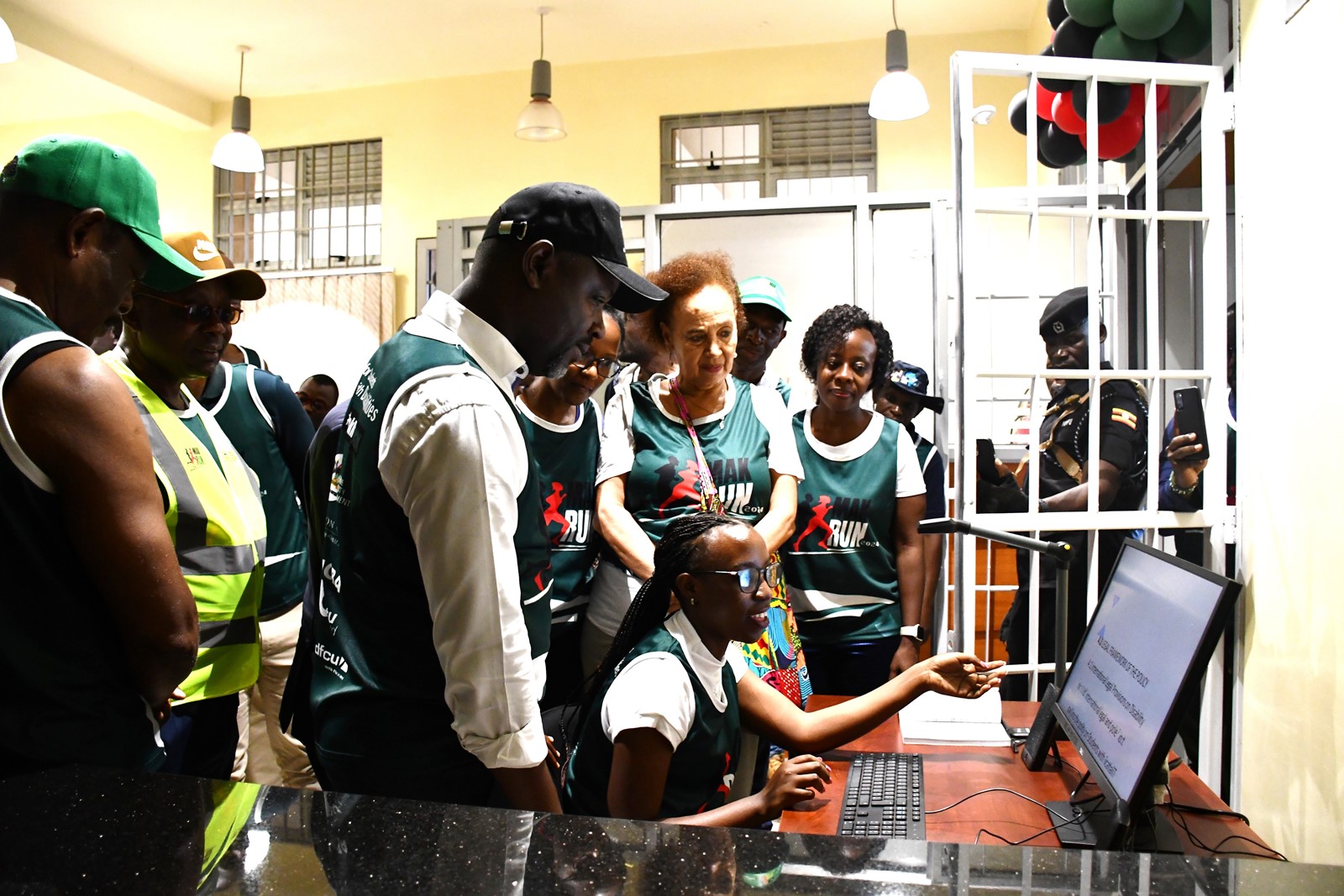
Students with disabilities at Makerere University have been requested to stop seeking for special attention and instead look for solutions and opportunities for personal growth.
This was during a mental wellness, inclusion and safeguarding session organized by the Dean of Students office and the Mastercard Foundation Scholars Program at Makerere University.
Addressing students on mental health and disability inclusion, Mr. Marvin Ggaliwango, a lecturer at the College of Computing and Information Sciences (CoCIS), noted that if the students stop complaining, they will become empowered to take charge of their own development, build resilience and engage confidently in both academic and social environments.
“Turn your lived experiences into tools for innovation. Stop complaining and start creating solutions for yourselves. You are the one living this life, and that gives you the authority to be an expert. When you develop a solution, it doesn’t just benefit you, it helps others too, by removing barriers,” Mr. Marvin Ggaliwango, said.
He encouraged students to see themselves not as victims of circumstance, but as active participants and co-creators of the inclusive environment they wish to experience.
“Learn how to communicate effectively and humbly. If you have a problem, express yourself clearly. Do not isolate yourself or feel resentful. You are not defined by disability, you may face disadvantages, but you still have ability,” he encouraged.
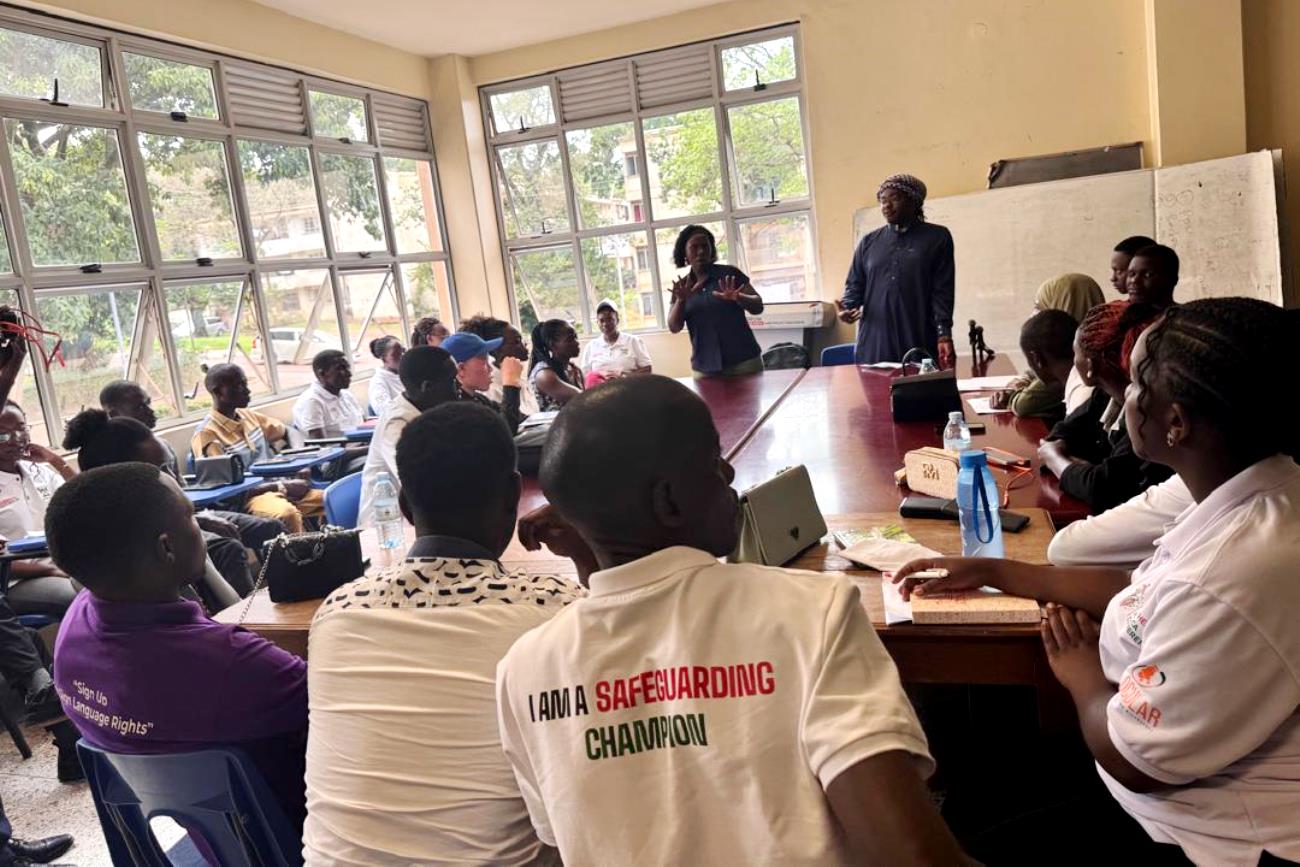
Throughout the session, students listened attentively as he emphasized the importance of self-awareness and personal responsibility, urging them to understand their strengths, acknowledge their limitations and take deliberate steps toward personal growth while contributing positively to the University community.
“We must enhance and ensure that our mental health is number one. Always choose yourself first. Choose what makes you happy and protect your peace. If you are at peace with yourself, your academics will improve. There is a strong link between mental wellness and academic success,” Mr. Ggaliwango, noted.
In his speech, Mr. Musa Mwambu, the Disability Inclusion Advisor at Light for the World Uganda, called upon the students with disabilities to enhance and ensure that their mental health is prioritized.
“As students living with disabilities, sometimes you over expect, because you have a disability you should be given, listened to and when people do not listen to you, you attribute it to your disability, get it from me, even those without disabilities are not listened too. Things are not happening to you because of your disability it is because of the world we live in. Everything that happens to you can happen to others,” Mr Mwambu, noted.
“Have fun with your life. Make yourself happy and be smart. Present yourself in public confidently wherever you go. The way you carry yourself can improve your mental health and how others perceive you,” Mr. Mwambu said.
He reminded the students that gaining admission to Makerere is itself a milestone.
“There are many people without disabilities who have never stepped at Makerere University. Find something that empowers you and hold on to it. You may have a physical impairment, but if you are brilliant in class, you can lead discussions and inspire others,” he added.

During the session, Dr. Rodney Rugyema, the Acting Principal Warden, welcomed the students back from the long holiday. He assured them that the University is committed to their safety and well-being while on campus.
Dr. Rugyema emphasized that the University has systems in place to protect students, both physically and psychologically and encouraged them to report any concerns promptly.
“When you are at the University, you are not on your own, we are always here for you. For us to engage you on mental wellness and inclusion, we want you to be in the right state of mind, whole and complete,” Dr Rugyema, said.
He added: “We are here to empower you and we are calling upon you not be a risk for yourself and always be able to detect risks that are likely to affect your mental health and works towards avoiding them and reporting them to ensure that the University manages them before they escalate into real harm whose impact is more serious than you can think,”
During the session, Ms. Diane Nabikolo Osiru highlighted the University’s broader commitment to safeguarding.
Safeguarding at Makerere University refers to measures put in place to promote safety and wellness of all students, staffs and other stakeholders.
“At Makerere University, safety is not a luxury for few. but it is a right for every student. As the semesters begins, we are urging you to learn how to identify signs of harm or abuses and report them to the appropriate safeguarding contact points,” Ms Nabikolo, said.
For support in case of any harm or abuse, International and Refugee Students, can access support through the Advancement and International Office, while Students with Disabilities, can utilize the Disability Support Center. Those with personal and emotional challenges, can visit the Counselling and Guidance Centre.
In his speech, Dr Joab Agaba, a Lecturer in the College of Computing and Information Sciences, guided students how to report risks and incidences to the MakSafeSpace, the e-reporting platform complimenting the other University traditional reporting channels.
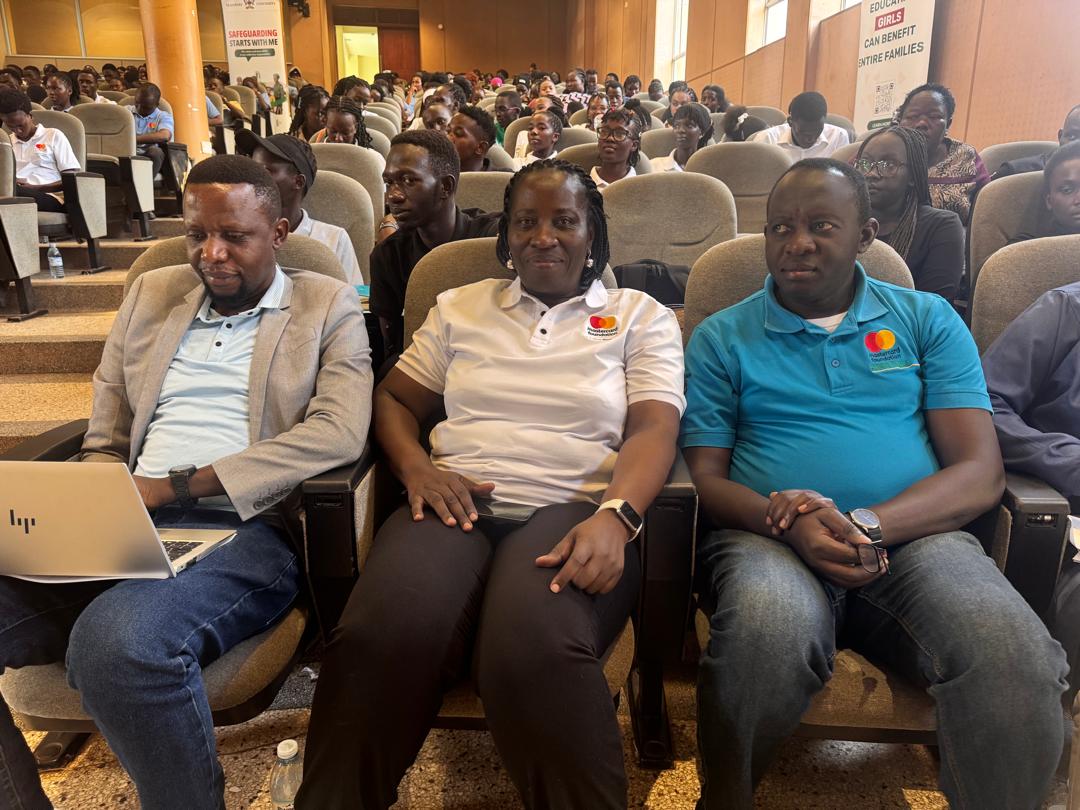
Mr. Henry Nsubuga, the Manager of the Counselling and Guidance Center, shared practical strategies for coping with stress effectively including time management, setting realistic goals, seeking support from peers or counsellors.
Students speak out
Shanitah Nahamya, 2nd year student of the Bachelor of Adult and Community Education
“I have learned how to respectfully and appropriately engage with students with disabilities. In the past, I often felt pity when I encountered them, but now I understand that what they need is not pity, it is respect, support, and equal opportunity.”
Guo Dorothy Geri, 1st year student of the Bachelor of Commerce
“I have learnt how to use inclusive language. Before offering help to a student with a disability, I will first ask them, because not all the time do they need our help. You might think someone wants to be helped to cross the road, yet they are waiting for someone.”
Valentines Doris Aduka, 1st Year student of the Bachelor of Biomedical Science
“I have been calling students with disabilities special names, thinking it was kind. But I have learned that they do not want to be treated differently or labeled in a special way. What they value most is being treated like everyone else, with respect, dignity, and fairness.”
Trending
-

 Humanities & Social Sciences1 day ago
Humanities & Social Sciences1 day agoMeet Najjuka Whitney, The Girl Who Missed Law and Found Her Voice
-

 Health6 days ago
Health6 days agoUganda has until 2030 to end Open Defecation as Ntaro’s PhD Examines Kabale’s Progress
-

 Agriculture & Environment4 days ago
Agriculture & Environment4 days agoUganda Martyrs Namugongo Students Turn Organic Waste into Soap in an Innovative School Project on Sustainable Waste Management
-

 General6 days ago
General6 days agoMastercard Foundation Scholars embrace and honour their rich cultural diversity
-

 Health2 weeks ago
Health2 weeks agoCall for Applications: Short Course in Molecular Diagnostics March 2026
